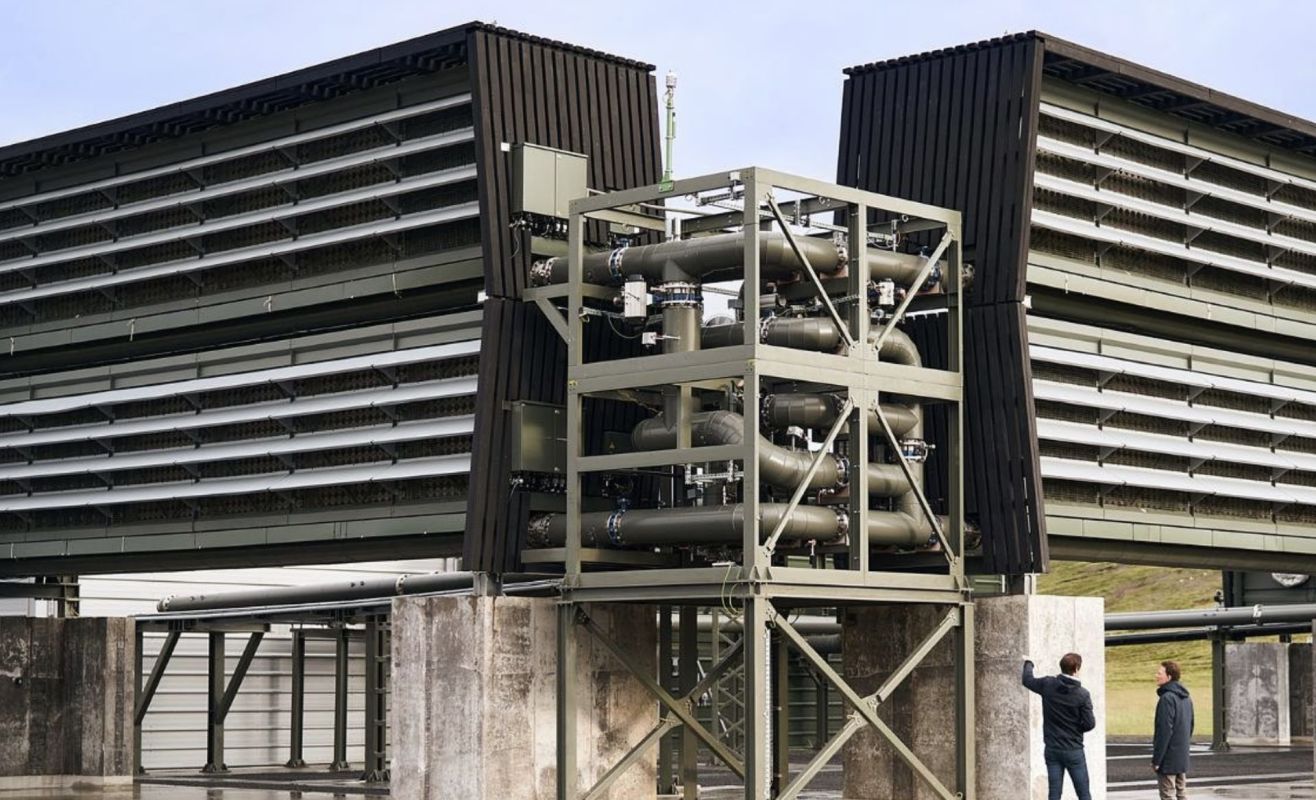You'd expect the folks at Kirby, Hoover, or Dyson to be getting the call from Uncle Sam on its latest project.
But, surprisingly, a large oil and gas business is one of the companies the federal government is tapping to vacuum pollution from the air.
As part of a bizarre $1.2 billion plan, the U.S. Department of Energy wants to suck pollution out of the atmosphere using giant filter machines. The dirty pollutants will then be buried in the ground as part of a process called direct air capture (DAC), according to the Washington Post.
Once considered fringe, the Post reported that scientists are now warming to the idea of the enormous vacuums as a potential way to curb the planet's overheating. The $1.2 billion will fund hubs in Texas and Louisiana as part of a proof of concept project, per the Post.
Once operating, the hubs could, in theory, remove more than 2.2 million tons of pollution from the air each year, per CNBC.
"[W]hich is like taking nearly half a million gas-powered cars off the road," Department of Energy secretary Jennifer Granholm told CNBC.
The systems will use technology from Occidental Petroleum Corp., also called Oxy (Texas hub) and Climeworks (Louisiana hub).
The Post reported that Oxy, one of the nation's largest oil and gas producers, has leased more than 100,000 acres near the Gulf Coast for the DAC effort. The company plans to eventually use the vacuums to create what Oxy officials call a "net-zero" fuel.
The plan is to pump the pollution sucked from the air back into the ground — and push oil out. Oxy claims the process would not contribute "additional" pollution to the atmosphere, per the Post.
That part of the plan isn't without critics, and government officials told the Post that federal funding isn't paying to push oil.
Climeworks, for its part, exists to "protect our planet," according to its website. Company co-founder Christoph Gebald said in a video clip that DAC puts the pollution deep in the ground where it originated, nullifying its ability to cause warming.
The company's operation in Switzerland, which is featured in the clip, is one of 18 systems worldwide.
The two hubs would be the first of their kind in the U.S., and the Biden administration plans to pump billions of dollars more into DAC systems around the nation, according to the Post.
DAC advocates consider the tech a necessary starting point to limit planetary overheating.
"What if we had a technology to stop climate change?" Gebald said in the clip. The results from Texas and Louisiana may provide the answer. Yet, the best way to slow the overheating of the planet is to limit our use of dirty energies in the first place.
Join our free newsletter for weekly updates on the coolest innovations improving our lives and saving our planet.









